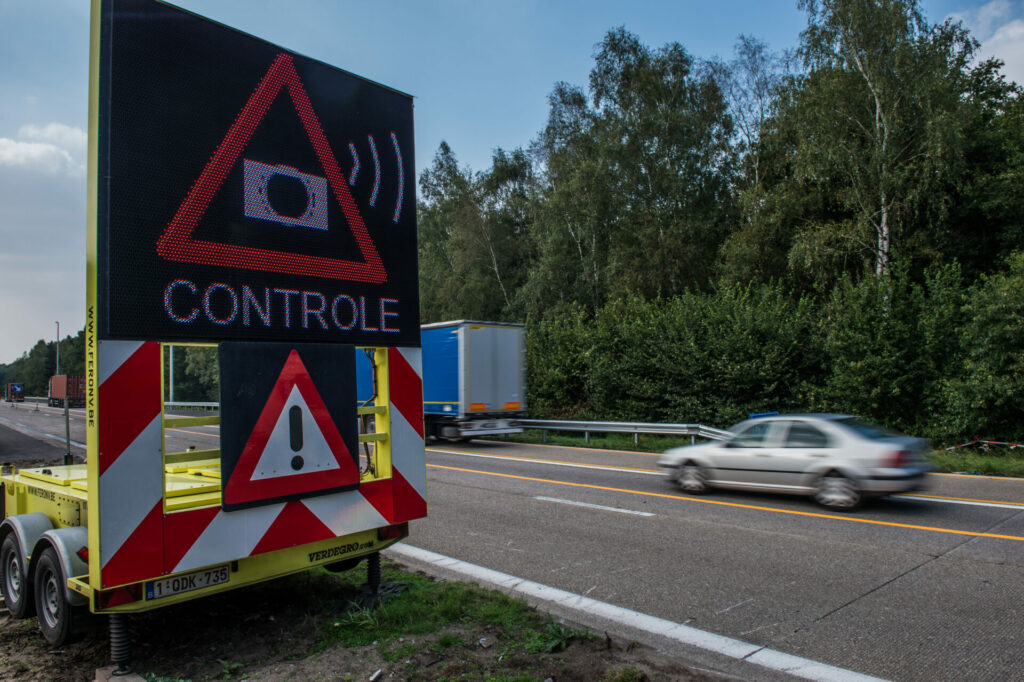The number of drivers who broke the speed limit on Belgian roads in 2021 reached a new record, while an increasing number of people are under the influence of drugs behind the wheel, the national traffic statistics for last year showed.
The number of speeding offences rose by no less than 14.75% in comparison with 2020, according to the Federal Police, which published the figures on Friday morning. In 2021, 4,659,808 speeding offences were recorded, the highest number ever.
"The figures speak for themselves. The year 2021 is characterised by an increase in the number of offences detected on the country's roads and motorways," Koen Ricour, Director of the Federal Highway Police, said. "2021 is a sad record year as far as the number of traffic offences is concerned."
The total number of traffic offences detected in 2021 (6,063,010) increased by 13.17% compared to 2020 (5,357,224) and by 15.30% compared to 2019. This increase is mainly due to the high number of new devices to check speeding and process all offences.
Drugs and drinks
A remarkable increase was also recorded in the number of drivers that were caught driving under the influence of drugs, as was confirmed in a recent survey. The police already announced earlier this year that they are being provided with three times more saliva tests than in 2020, which will result in the risk of people being caught tripling.
In 2021, there were 13,185 official reports for driving under the influence of drugs, 3,000 more than in 2020, and an increase compared to 2019. The increase could be explained by the fact that detection processes have been simplified, and that the public prosecutors more systematically impose a saliva test after an accident.
Meanwhile, the number of official reports written up for drink-driving was higher in 2021 than in 2020 — 35,724 compared to 31,119 — but lower than that for 2019 (51,891).
Related News
- Zero road fatalities in Flanders by 2050 will be 'huge challenge'
- Traffic casualties fall between 2021 and 2019
This can be explained by the successive lockdowns and other Covid-19 measures, and by the suspension of major control campaigns.
The number of people who used a mobile phone behind the steering wheel also increased slightly (+6.2%) since 2020, however, here too the public prosecutors and the police services are paying more and more attention to this form of distraction behind the wheel.
"There is still a lot of room for improvement among Belgian drivers when it comes to respecting traffic rules and I urge them to take these rules seriously," Ricour said.

